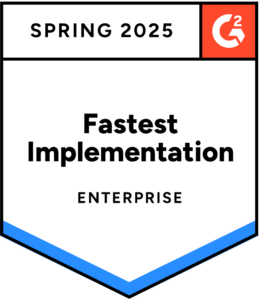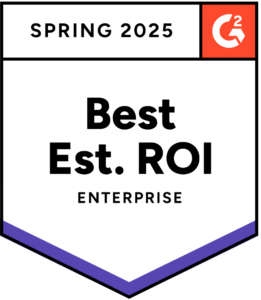Job 1: The CFO as a Value Driver for the Organization
Blog post
Share
This blog was written by Bill Marchionni, Account-to-Report Advisory Global Program Leader, The Hackett Group.
Investors, Boards of Directors, and CEO’s expect CFOs to play an active, visible role in driving enterprise financial and operational performance to be an impactful business partner and operational advisor.
Leading CFOs are redesigning structures and realigning resources. They are developing new capabilities and focusing on sharpening existing ones. The emerging enterprise will consist of highly skilled, high-impact specialists augmented by digital-era capabilities.
Business Risks, Disruptors, Challenges to Value
Organizations face risks, disruptors and challenges that necessitate sophisticated business, market and competitive assessments and responses. A poll by The Hackett Group® identified the top 10 key disruptors that CFOs face. Interestingly, the CFOs considered 4 of the disruptors to be positive opportunities. These include the belief that we are entering an innovation phase where AI and digital channels bring the opportunity for fundamental transformation.
| Disruptor | Impact |
| Artifical intelligence | Positive |
| Digital channels for finance delivery | Positive |
| Innovation | Positive |
| Work from anywhere | Positive |
| Geopolitical risks | Negative |
| Inflation | Negative |
| Economic downturn | Negative |
| Cyberattacks | Negative |
| Persistent structural gaps | Negative |
| Changes in global regulations | Negative |
Significant negative disrupters include geopolitical risks, inflation, economic downturns and cyberattacks, all of which require a coordinated and integrated enterprise response. CFOs are expected to be integral leaders in addressing these challenges, near-term and long-term.
Next Generation Operating Model – Enterprise Realignment
The next-generation operating model enables digitally scaled and AI-enabled future ways of working. In a Digital World Class® next-generation operating model, resources are more evenly distributed between roles owned by the function, roles managed by the function, and shared roles managed by the overall enterprise.
Digital Operations (Data Governance, Customer Services, AI, and Technology Enablement)
• Modern cloud-based applications and software robots perform finance transactional and administrative tasks.
• Digital operations platform becomes specialized, compelling early career paths for future finance leaders who leverage, from the outset, intelligent automation technologies (e.g., AI).
Enterprise Capability Centers (Specialized Focus and Development)
• Areas of focus include leadership and talent strategy, strategic business planning coordination, business development, enterprise risk management, merger and acquisition integration, and learning and development.
• Finance owns the execution of accounting and reporting and establishing a robust and auditable control environment led by a specialist enterprise-owned area.
Transformational Execution Teams (On-Demand Project Execution Resources)
• Transformation management will include project teams assembled, as needed, and disbanded after achieving their goals; and a permanent structure to continuously focus on triaging issues, evaluating and prioritizing projects, and designing and executing change programs.
• In a world of untapped and evolving AI capability, this will become a critical area for any organization wishing to achieve Digital World Class® performance.
Next Generation Operating Model – Finance Realignment
Top-performing Finance organizations operate at a high strategic level, drive transformation in successive waves, and wire themselves to exploit new and nascent technologies (e.g., AI).
CFO (Champion of Enterprise Performance):
• Finance leadership is positioned to champion enterprise performance and work with top business executives and the Board of Directors to establish and execute growth objectives.
• Shift from leading a silo of resources, to coordinating various teams that contribute to enterprise and functional objectives. Finance boundaries blurred and hierarchies flattened.
• Ensures a re-energized emphasis on internal control, especially considering emerging disclosures and heightened risks from an AI explosion and increasing cyber threats.
Business Enablement Leaders (Lead Enterprise Transformation)
• Combines deep functional expertise with strategic thinking, a strong transformation mindset and exceptional leadership skills. Delivers insight and advice. Propose and lead local transformation initiatives. Coordination and voice of finance to internal customers.
• Fortified by digital platforms with built-in AI, they have the time, tools, and insights to partner with senior business leaders to advance enterprise growth strategies.
Specialized Functional Teams (Highly Skilled Finance Experts)
• Have direct access to digital platforms, tools and analytical insights that support finance functions. In a Digital World Class® operating model, finance will leverage fewer but more senior corporate finance experts with higher-level skills to drive corporate finance initiatives and support the organization’s senior leadership team.
• Breakthroughs in domain-specific AI will transform and cede routine work to digital operations and remove language and technical knowledge barriers.
Controllers Before, Controllers After
Automation and digital tools are central to the future finance strategy and will eliminate “the last transactional mile, data mile, reporting mile.” Opportunities and expectations of the Controller, and the Controller’s organization, will change. Traditional skill sets and capabilities will not provide differentiation. Broader business problem-solving will be expected.
| Controller Before | Controller After |
| Accounting expert | Subject matter expert |
| Operational accountant | Business partner |
| Business accountant | Business analyst |
| Operational process expert | End-to-end process governor |
| Process analyst | Data scientist |
Controllers will need to transition, in skills and mind-set, to an operating model where their financial knowledge is no longer what they do, rather, it is foundational to providing sophisticated business partnering support.
Final Thoughts: Now Is the Time for the Next-Generation Enterprise
CFOs at leading organizations are navigating toward next-generation organizational operating models, even if they have not framed it as such. They realize they need to redefine the finance function’s organizational operating model to fully exploit the opportunity presented by advanced intelligent automation solution, and respond effectively to market and competitive challenges.
While traditional finance tasks may, to a limited degree, still exist, how that work is performed will change. Without the right organizational design and enabling foundations, the opportunity to achieve impressive results may be out of reach for many organizations. CFOs know this and are taking action.






